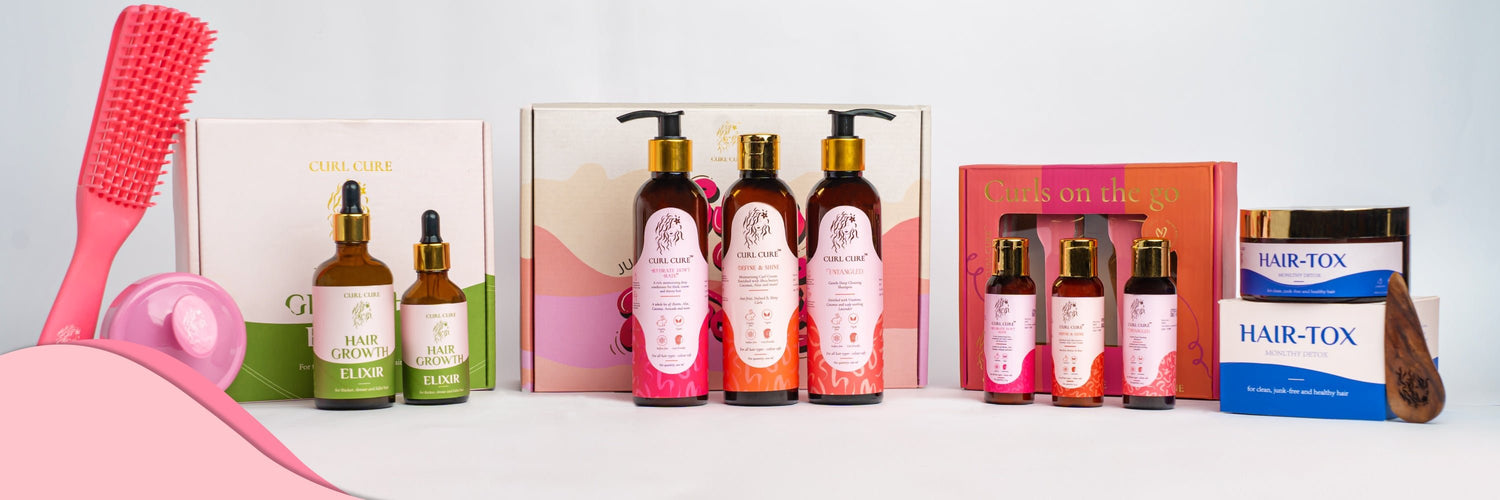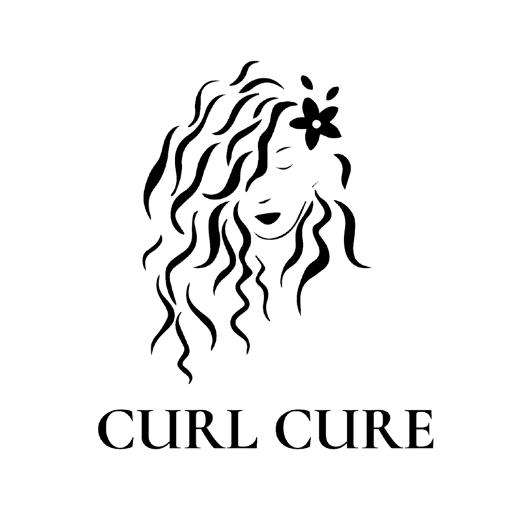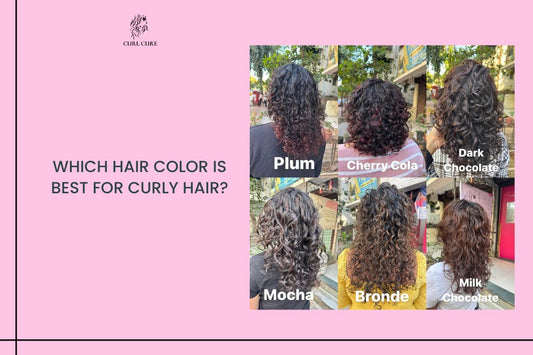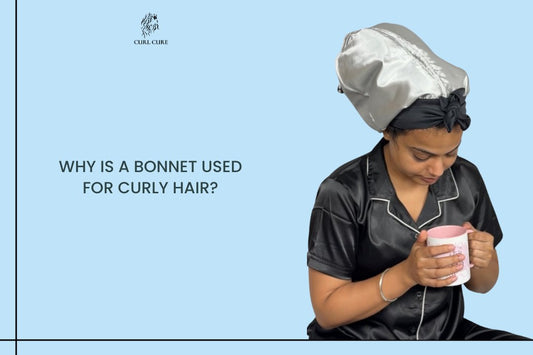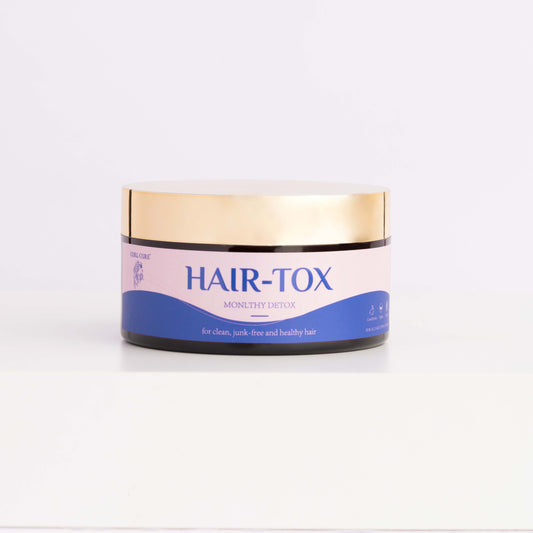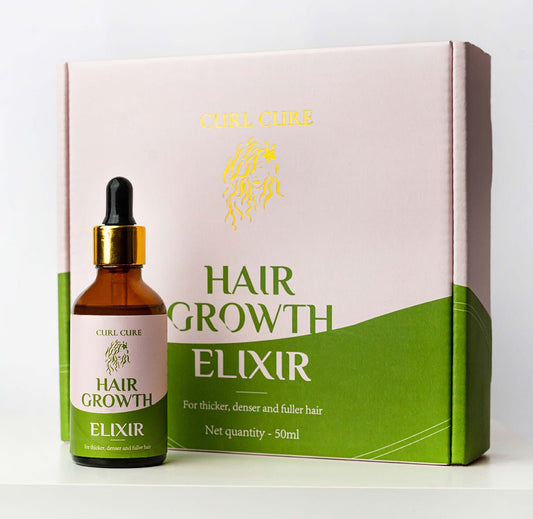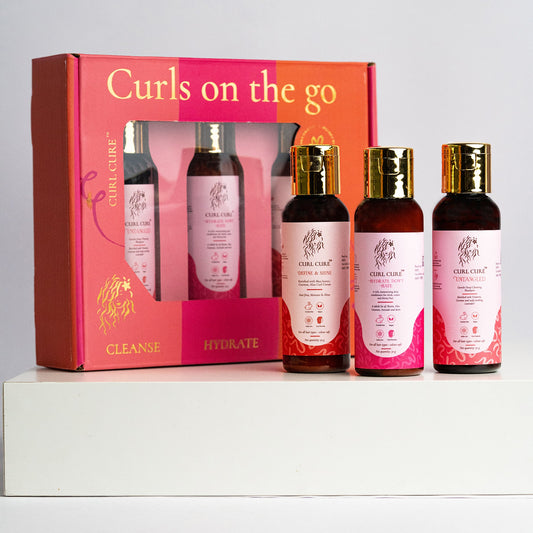This detailed guide looks at the difficulties of growing curly hair longer, gives helpful tips, and answers frequently asked questions to aid curl growth.
|
Table of Contents |
|
Introduction |
|
Understanding Curly Hair Growth |
|
Challenges in Growing Curly Hair |
|
Tips for Growing Curly Hair Successfully |
|
Dealing with Impatience and Frustration |
|
FAQs |
Is it hard to grow curly hair?
Introduction
Growing curly hair long can feel like a constant uphill battle. As beautiful as curly hair is, it comes with unique challenges that make lengthening an incredibly rewarding yet demanding process. Most importantly, growing curly hair long requires an incredible amount of patience. Appreciating and celebrating every new inch of hard-earned, healthy growth is key.
Understanding Curly Hair Growth
While curly hair grows at the same rate as straight hair - around half an inch per month - its coiled, twisted texture can create the illusion of slower growth. The spring-like curves and bends in curly strands make length appear to increase at a more gradual pace. However, the hair itself is indeed growing steadily.
Challenges in Growing Curly Hair
- Genetics and Hair Type: Genetics play a significant role in determining the texture, density, and growth rate of curly hair. Some individuals may have naturally slower-growing or more delicate curly hair due to their genetic makeup.

- Dryness and Breakage: One of the biggest obstacles for curly hair is dryness. The natural oils produced by the scalp have a harder time traveling down the winding, coiled pattern of curly strands. This chronic lack of moisture leaves curls vulnerable to frizz, brittleness, and increased breakage - all of which can seriously impede length retention and growth progress.

- Shrinkage: Curly hair has a unique ability to shrink up and appear much shorter than its actual length when dry. This "shrinkage" phenomenon can make it extremely difficult to gauge hair growth visually and be quite demoralizing for those trying to achieve longer lengths

- Fragility: The twisted, curved structure of curly strands makes them inherently more delicate and prone to breakage from daily friction, manipulation, brushing, and styling
- Knot and Tangle Troubles: The corkscrew curl patterns easily intertwine and knot up, especially as length increases. Attempting to detangle with excess force leads to excessive shedding and snap-age.

- Porosity Variations: Curly hair density and porosity levels run the gamut from low to high porosity curls. This variability means some experience challenges like overhydration and stretching while others constantly feel parched. A customized routine is required. Learn more about hair porosity here.
Tips for Growing Curly Hair
- Proper Hair Care Routine: Establishing a consistent, curl-centric hair care regimen is crucial. This includes using sulfate-free, moisturizing shampoos, deep conditioners and a curl cream, regular hair spa and detox treatments, and trimming split ends every 8-12 weeks. Our curly hair salons, Curl Cure Salon, Mumbai and NEU Hair Salon, Delhi specialize in curly haircuts and treatments such as hair spa and detox.
- Hydration and Moisture: Maintaining proper moisture levels is the golden rule of curly hair growth. Use curl creams, intensive hair masks and hair spas formulated for curly textures. This ensures your hair is deeply conditioned and hydrated
- Protective Styles: Wearing protective styles like braids, twists, pineapple buns and updo's on a regular basis using scrunchies minimizes daily styling friction and manipulation that leads to breakage. This gives your lengths a much-needed break.

- Gentle Detangling: Work in sections when detangling curly hair, using plenty of slip from conditioner or curl cream. Finger detangle or use a detangle brush to prevent ripping through knots.

- Avoid Excessive Hydral Fatigue: While moisture is vital, over-wetting curly hair and leaving it soaked for long periods can lead to stretching, frizz and breakage from the weight. Aim for a balanced moisture-protein routine.
- Satin Protection: Using satin pillowcases and bonnets which preserves moisture and minimizes frizz and friction at night from cotton pillowcases

- Low Manipulation Habits: Limit rough towel drying by micro-plopping instead and using a microfiber towel instead of a cotton one. Avoid excessive brushing, vigorous detangling and aggressive styling that roughs up the delicate curl pattern.
- Use a Growth Elixir: Incorporate a hair growth elixir, a water-based serum, into your nighttime routine. Massaging it into the scalp daily, especially every night before sleeping, can help promote healthy hair growth over time.
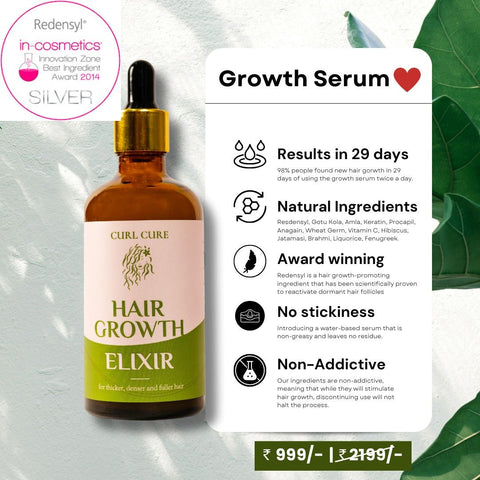
Dealing with Impatience and Frustration
Growing curly hair requires an immense amount of patience and consistency. It's crucial to manage expectations from the outset and understand that achieving significant length and overall hair goals may be a slow, gradual process. Curly hair growth can often feel stagnant due to the coiled strands shrinking upwards, giving the illusion of little-to-no progress.
However, this impatient mindset can lead to disappointment and the temptation to constantly switch up routines/products before allowing time for results. Stick with a tried-and-tested regimen tailored to your unique curl pattern for at least 6-12 months before evaluating its effectiveness.
Rather than becoming fixated solely on length checks, celebrate the small victories along this journey. Improved moisture levels, decreased shedding, stronger elasticity, and enhanced curl definition/clumping are all signs you're on the right path. Consistent length retention is the first step before experiencing exciting new inches.
FAQs
1) How can I speed up the growth of my curly hair?
There's no guaranteed way to drastically speed up hair growth, but following healthy hair practices helps maximize your curl's growth potential
2) Is it true that trimming curly hair regularly promotes growth?
Yes, regular small trims every 8-12 weeks are recommended for curly hair growth. This allows you to snip off split, damaged ends before they split further up the hair shaft leading to more breakage and impeding length retention. You can visit a curly hair salon like Curl Cure Salon, Mumbai and NEU Hair Salon, Delhi
3) Can hormonal changes affect the growth of curly hair?
Absolutely. Fluctuations in hormones due to factors like pregnancy, menopause, thyroid issues, birth control, etc. can interrupt curl patterns and lead to excessive shedding or sluggish growth for a period of time.
3) What role does diet play in promoting healthy hair growth for curly hair?
A balanced diet full of protein, iron, zinc, vitamin C, biotin and other key nutrients provides the hair with its building blocks for strong, elastic strands. Deficiencies in these nutrients can result in dryness, shedding, and stalled growth.
4) Can low density/thin curly hair be "trained" to grow thicker/fuller?
Not exactly. You can't alter your hair's density or diameter after it emerges from the follicle. However, using moisturizing products and avoiding harsh styling can prevent cuticle damage that causes individual strands to appear thinner.
6) Does frequent washing affect curly hair growth?
Over-washing can strip away too many natural oils for curly hair, leading to dryness, frizz, and potential breakage issues. It's best to shampoo 1-2 times per week, focusing on hydration.
